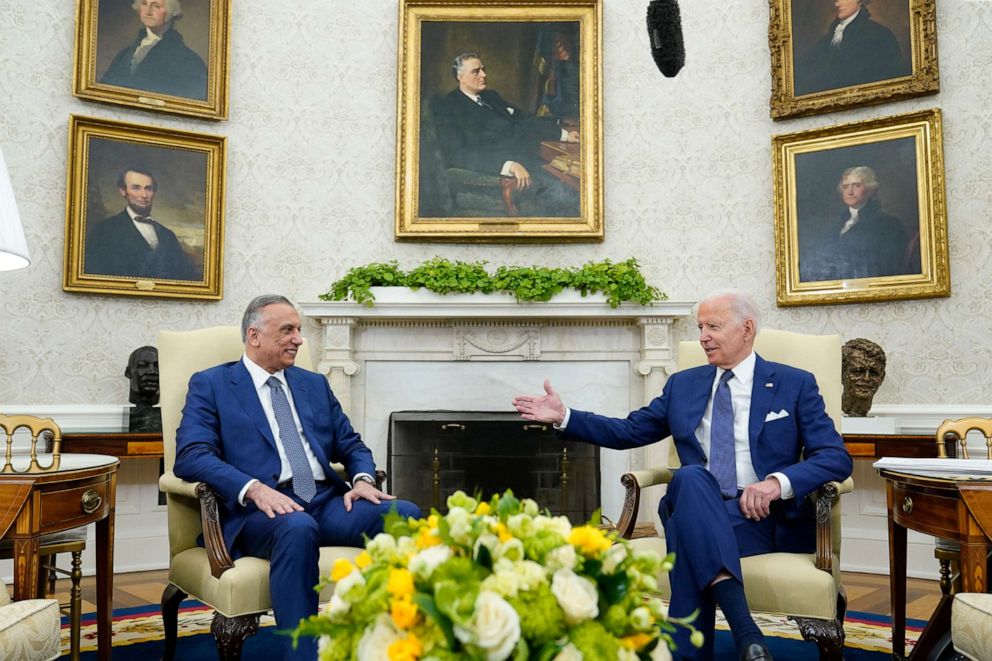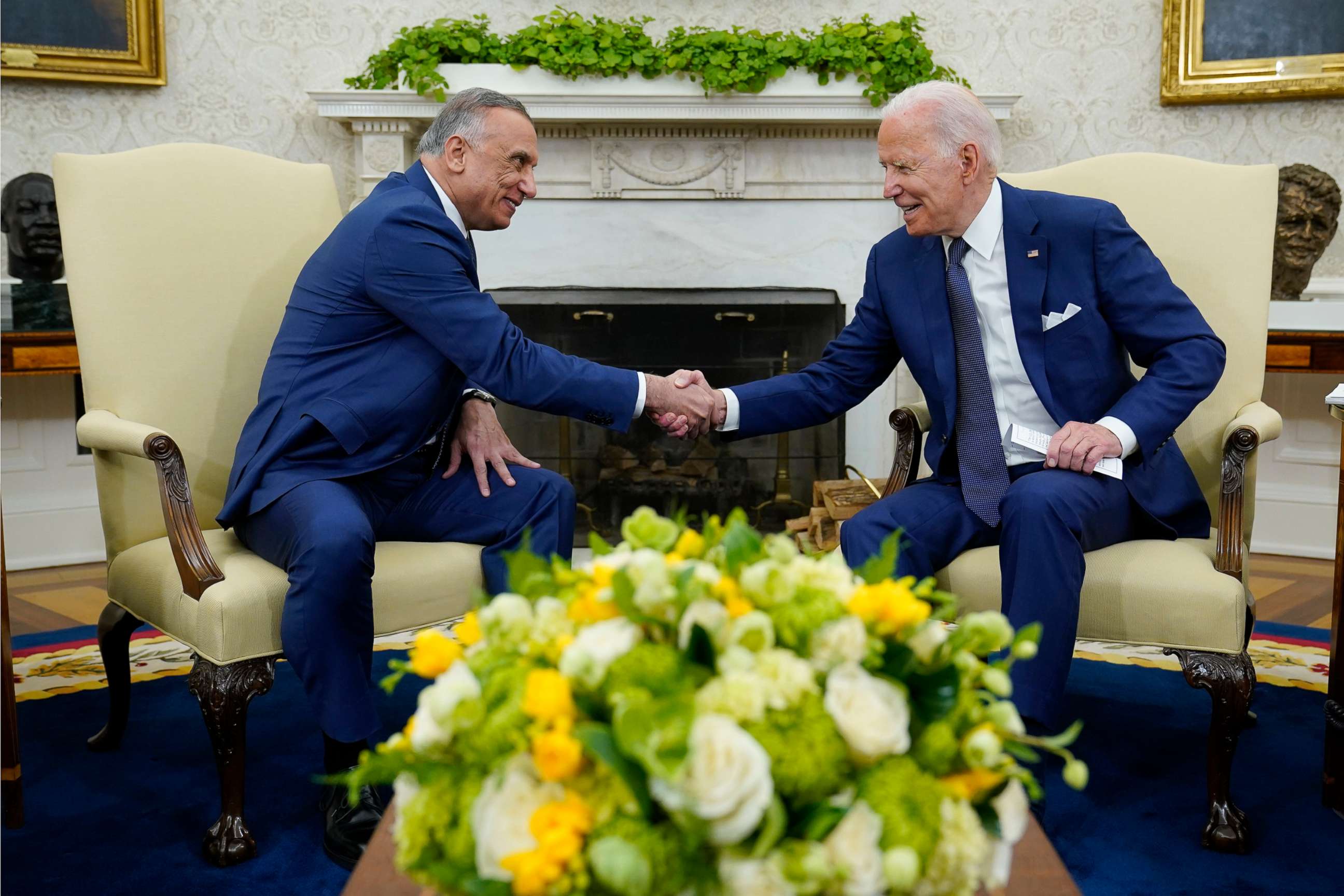US concludes combat mission in Iraq as Biden meets with Iraqi prime minister
A U.S. official told ABC News the change in mission is more of a semantic one.
President Joe Biden said the U.S. is "not going to be, by the end of the year, in a combat mission" in Iraq.
The president, while meeting with Iraqi Prime Minister Mustafa Al-Kadhimi Monday afternoon, said the U.S. role there will be focused on training and assisting to combat the Islamic State group.
"Our shared fight against ISIS is critical for the stability of our region and our counterterrorism cooperation will continue, even as we shift to this new phase we're going to be talking about," Biden said.

A U.S. official told ABC News Thursday the change in mission is more of a semantic one and the number of U.S. troops in Iraq will not dramatically differ as they shift their emphasis to training and assisting.
As with anywhere around the world, the official added, U.S. troops reserve the right to defend themselves too.
Iraqi Ambassador to the U.S. Fareed Yasseen told ABC News last week that Iraqi forces will continue to request direct U.S. assistance for intelligence, surveillance, reconnaissance and training.
Several U.S. officials have said the 2,500 U.S. troops in Iraq are already largely in that kind of advise-and-assist role.
Both sides have repeatedly committed to U.S. troops exiting once the coalition to defeat ISIS completes its work, essentially kicking the can down a long road now to appease political pressure in Iraq, fueled by Iranian-backed factions and militias and U.S. air strikes against them.
During the Trump administration, a tit-for-tat series of attacks between Iraqi militias and U.S. forces in Iraq to fight ISIS precipitated an assault on the U.S. embassy in Baghdad in January 2020. While the Shiite militias were able to breach an outer perimeter, no one was injured in the attack.
Days later, President Donald Trump ordered the airstrike that killed Iran's most powerful general Qassem Soleimani, the commander of the Islamic Revolutionary Guard Corps' elite Quds Force. The strike outside Baghdad International Airport further inflamed anti-American sentiment among Shiite militias and Iraq's government responded by denouncing it as another U.S. violation of its sovereignty.
With a majority in parliament, Shiite lawmakers voted to expel U.S. troops that month. While the resolution was non-binding, there's been strong political pressure on the Iraqi government since then to see an end to the U.S. military presence, especially after the two governments and the defeat ISIS coalition declared the end of the terror group's so-called caliphate.

In a series of "strategic dialogues" since then, they have negotiated ways to strengthen U.S.-Iraqi cooperation on other issues, including trade, energy and diplomacy with Iraq's Arab neighbors, while repeatedly committing to pulling American forces out one day.
Biden on Monday also noted that the U.S. is sending Iraq 500,000 doses of COVID-19 vaccines, which the president said should be arriving "in a couple of weeks."
With Monday's announcement, that day could be closer -- but it's still not here yet.
That much was clear to those Iranian-backed Iraqi militias, also known as Popular Mobilization Forces. The spokesperson for one group, the Nujaba Movement, said in a statement that the change in mission was a "cheap trick."
They "will not differentiate between advisers of the occupation or soldiers of the occupation, for all of them are important targets for the weapons of the resistance, until the last occupying soldier leaves the land of Iraq," said the spokesperson, Nasser al Shammari.
ABC News' Libby Cathey contributed to this report.




